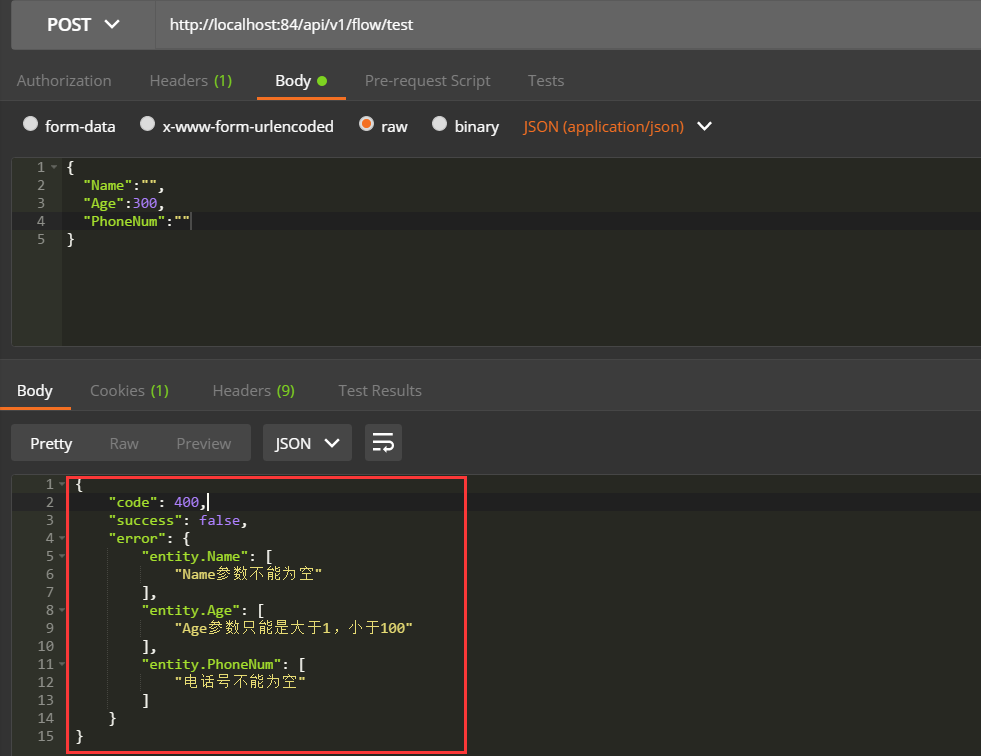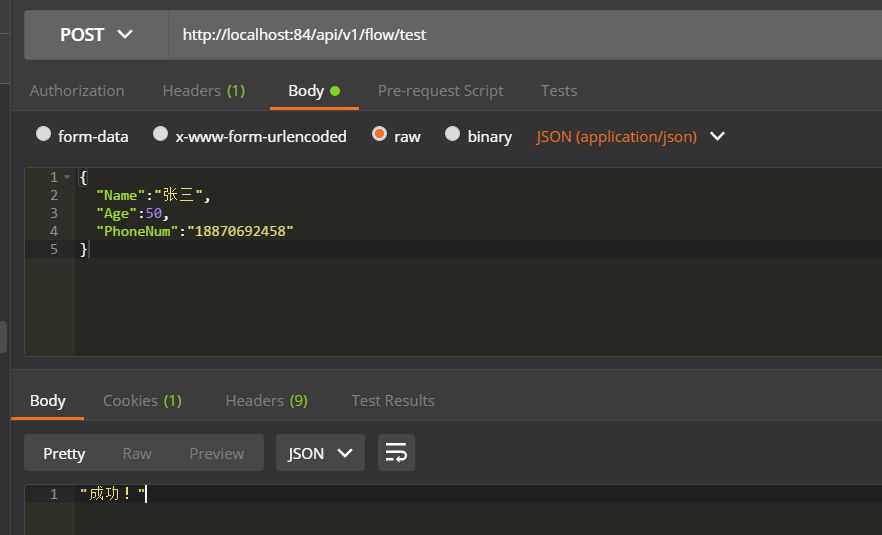通常情况下,对于那些经常为别人提供数据接口的开发人员来说,对于调用方传递过来的参数都会有验证处理。例如:
if (string.IsNullOrEmpty(entity.Name))
{
//当姓名为空时,.........
}
if (entity.Age<0 || entity.Age>100)
{
//当年龄小于0或大于100时,有的人可能超过一百岁,我希望我的有生之年Age>100,emm,.........
}
if (string.IsNullOrEmpty(entity.PhoneNum))
{
//当电话号码为空时,.........
}
if (!string.IsNullOrEmpty(entity.PhoneNum))
{
Regex regex = new Regex("^1[34578]\\d{9}$");
var result=regex.IsMatch(entity.PhoneNum);
if (!result)
{
//当电话号码格式不合法时,.........
}
}
//以下还有50个字段需要验证,是不是有种绝望的感觉,有木有?有木有?有人可能会跟调用者说,某个字段必须怎么怎么样,有些人就喜欢故意传错,故意刁钻,到头来,最苦逼的还是写接口的人。
有时候一个系统有十几二个接口,光验证的代码就一大堆,真的有时候不想写,都说程序猿是最聪明的一批人,自然有好的解决方法。
C# webapi 有一种叫模型验证的东西,在java里面,应该有一种注解的东西可以处理。
在ASP.NET Web API中,你可以使用System.ComponentModel.DataAnnotations命名空间的注解属性来设置模型属性的验证规则。考虑以下模型:
public class Personnel
{
[Required(ErrorMessage = "Name参数不能为空")]//Required 验证这个参数不能为空 ErrorMessage:为空时自定义错误信息
public string Name { get; set; }
[Range(1,100, ErrorMessage="Age参数只能是大于1,小于100")]//Range 验证值只能在某些范围内,只适用于Int类型的字段
public int Age { get; set; }
[Required(ErrorMessage = "电话号不能为空")]
[RegularExpression("^[1]+[3,4,5,7,8]+\\d{9}", ErrorMessage = "PhoneNum不合法的电话号码格式")]//RegularExpression 用正则验证字段的合法性,多用于身份证、电话号码、邮箱、等等...
public string PhoneNum { get; set; }
}
这样的话就可以节省大量冗余代码,那么,接下来如何去处理呢?
在接口请求之前,我们可以对客户端传过来的数据进行模型验证处理,对于webapi比较熟悉的人应该知道过滤器,不知道的可以看我前面的文章,如何使用webapi三大过滤器,过滤器是基于AOP,面向切面的编程思想。
在这里我们用的ActionFilterAttribute过滤器,只要继承这个接口并且实现其中的OnActionExecuting方法就行。具体实现如下:
using System.Collections.Generic;
using System.Linq;
using System.Net;
using System.Net.Http;
using System.Web.Http.Controllers;
using System.Web.Http.Filters;
using System.Web.Http.ModelBinding;
namespace Huajie.Application.Web.Controllers.Apis
{
public class ModeActionFilter: ActionFilterAttribute
{
/// <summary>
/// 接口请求前验证数据
/// </summary>
/// <param name="actionContext">上下文</param>
public override void OnActionExecuting(HttpActionContext actionContext)
{
if (actionContext.ModelState.IsValid == false)
{
// Return the validation errors in the response body.
// 在响应体中返回验证错误信息
var errors = new Dictionary<string, IEnumerable<string>>();
foreach (KeyValuePair<string, ModelState> keyValue in actionContext.ModelState)
{
errors[keyValue.Key] = keyValue.Value.Errors.Select(e => e.ErrorMessage);
}
actionContext.Response =actionContext.Request.CreateResponse(HttpStatusCode.BadRequest, new
{
code= HttpStatusCode.BadRequest,//返回客户端的状态码
success = false,
error = errors//显示验证错误的信息
});
}
}
}
}
在WebApiConfig.cs里面注册一下这个过滤器
config.Filters.Add(new ModeActionFilter());
请求方法示例:
[Route("test")]
[HttpPost]
public string Test([FromBody] Personnel entity )
{
return "成功!";
}
接下来我们就是要postman接口测试工具就来看一下效果

提示的信息是不是很熟悉,对的,就是我们自定义的错误信息

给大家展示参数传递正确的效果

看到这里,是不是感觉又掌握了一点东西。
只要你肯去钻研,去折腾,你总会收获点什么!